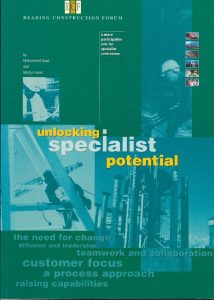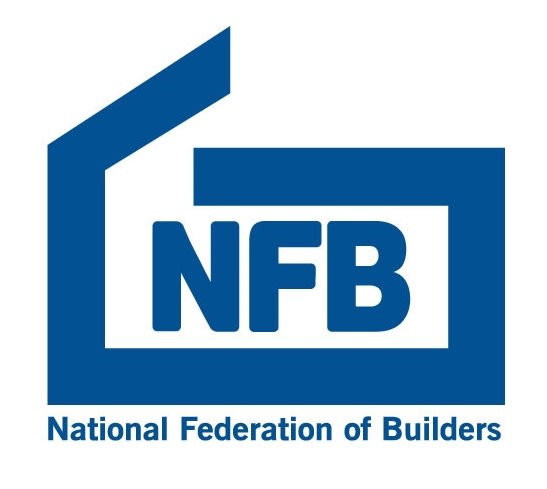
Leading homelessness charity, SIFA Fireside is inviting the construction and civil engineering sector to be part of an innovative new concept called Building Employability. The new scheme seeks to increase training and employment opportunities across the West Midlands for people who have experienced homelessness or exploitation.
‘I pledge’ is the first phase of the programme targeting small and medium-sized enterprises (SMEs) from across the region. The ask is simple; pledge support for socially responsible approaches to recruitment that helps provide opportunities for people who have experienced homelessness and those who are vulnerably housed. The charity is asking organisations to make their pledge and be directly involved in developing the concept as we begin to think about the post COVID landscape.
Highway Traffic Management has been the first to pledge their support. Managing Director and SIFA Fireside Patron Greg Baldwin said about the scheme: “We are very excited to have been involved in the planning and now the launch of Building Employability with SIFA Fireside. They have supported us hugely in tackling hidden homelessness within our workforce and it’s time for us, and the businesses of Birmingham to come together and pledge in support of their objectives and the aims of this movement.”
Working closely with SIFA Fireside’s specialist Teams, our Building Employability partners will use our innovative employment model to offer clients job opportunities and training within their business.
SIFA Fireside’s Fundraising and Corporate Partnerships Manager, Melissa Roche, said: “COVID-19 has impacted heavily on individuals and businesses across the region, which is why now is a crucial time to look at how we can work together to develop clear pathways and increase the number of people that have access to sustainable employment and accommodation opportunities.
“The commercial sector plays a key role in tackling homelessness in the city and a number of our corporate partners have offered employment opportunities to our work ready clients. Pledging your support to Building Employability is the first step to extending our reach within the thriving building and construction industry in Birmingham. Building Employability is a long-term approach that we want to develop with partners that stimulates real change and action.”
If you’d like to find out more and pledge your interest to come on board and help us develop our Building Employability project, visit our pledge page HERE
CLICK HERE to view the SFBA Proposal PDF
Businesses working in the built environment in the West Midlands are being encouraged to celebrate their successes following a hugely challenging year for the construction industry. Entries for the Constructing Excellence West Midlands Awards are now open, with 14 prizes on offer spanning projects, innovations and sustainability.
Sponsored by Salus, the awards honour companies and individuals working in the construction industry in the region, with winners moving forward to the organisation’s national awards. Andrew Carpenter, chief executive of Constructing Excellence Midlands, said: “The past twelve months have been incredibly difficult for everyone, but as an industry, we should be very proud of the way we have adapted to the challenges that we have faced.
“These awards give businesses the opportunity to be recognised not just for the great work they do on projects across the region, but also for their efforts in developing their people and creating social value.”
Unlike last year – where lockdown restrictions meant the awards were held virtually – this year’s honours will be presented at a physical ceremony in September.
Carpenter said: “As restrictions on social gatherings begin to lift and we progress through the Prime Minister’s roadmap, we wanted to ensure that the awards ceremony was an opportunity for our industry to get together in person and celebrate its successes in a way that hasn’t been an option for the past year.
“We will be keeping a close eye on the situation regarding indoor gatherings and will ensure that the event follows all the necessary protocols to ensure that everyone can remain safe and well.”
Paul Meadows, director of the event’s headline sponsor, Salus, said: “We’re delighted to be supporting these awards, which do a wonderful job in recognising the hard work of the people and companies that make up our industry.”
To be nominated, projects, schemes, processes or philosophies should have contributed to the West Midlands built environment and can be celebrated as an example of best practice. Entries are welcomed from developers, clients, contractors, specialist and sub-contractors, engineers, members of the design team and other consultants.
The deadline for submissions is Monday, 19th April 2021. For more information and to enter, please visit cemidlands.org/about-the-awards-west-2021

Our mission is to create an inclusive platform for engagement between cross-sector communities of like minded innovation-driven entrepreneurs, corporates and the local business support ecosystem, to connect, exchange and grow.

SCHOOL OF ARCHITECTURE DESIGN AND BUILT ENVIRONMENT
Project Overview.
Retrofitting the existing housing stock represents a huge potential in actions to mitigate climate change and achieve the UK’s carbon neutral targets. There are also wider benefits from retrofit investments in addition to those of environmental aspects, such as improved health & well-being of occupants or fuel poverty reduction and job/employment creation and local economic growth.
However, these social-related benefits are not easily articulated or measured during the decision-making process of many retrofit investments. There is therefore a need for robust tools that allow a wholistic appraisal of investments in retrofit programmes/projects to evaluate their full benefits comprehensively. Doing so has the potential to strengthen the justification needed for retrofit investments especially in the social housing sector where retrofitting yields the greatest impacts.
This research project at the Nottingham Trent University’s School of Architecture Design and Built Environment seeks to develop a measurement framework tool that can be used to capture these social benefits and impacts in a systematic way and quantify them in economic terms to allow for robust and informed retrofit investment decision-making for social landlords and their residents/tenants.
The aim
As part of this study, the research team is undertaking data collection with social housing experts and practitioners in order to understand any existing retrofit evaluation tools and methods and to identify benefits of retrofits from their respective. This will generate a set of indicators of retrofit benefits. Experts will also be consulted on methods and criteria for scoring these indicators.
The research team will produce a framework and a set of tools for systematically identifying and measuring benefits of retrofit investments, which can be used by all
stakeholders, such as policymakers, social landlords, supply chain partners, community groups and residents themselves.
The benefits for the social housing sector
- The output of this project will be a measurement tool that could help social housing associations to evaluate their retrofit programmes and measure the socio-economic impacts/benefits from the same.
- It will aid in better decision-making for retrofit investments in terms of selecting the most relevant strategies to achieve certain benefits.
- It will also help in the evaluation of retrofit project performance by providing a systematic and comprehensive framework to guide the entire process
Contact the Research Team
For more enquiries or concerns regarding this research, please contact:
Michael Asinyaka: michael.asinyaka2019@my.ntu.ac.uk, or Ming Sun (Prof): ming.sun@ntu.ac.uk or Emmanuel Manu (Dr): emmanuel.manu@ntu.ac.uk.

I am pleased to be able to welcome you all to April’s Constructing Excellence Overview on which I want to talk briefly on the key challenges facing the construction industry.
Despite the massive shock inflicted by the Covid-19 pandemic, there are a number of industry reports forecasting a growth in the construction sector over the next couple of years. With a new forecast growth and positive outlook in the construction industry, what could possibly be keeping construction professional up of a night? My thoughts are focused on what I believe to be the big three challenges facing the construction industry over the next several years, these are changes in construction legislation, climate change and skills & labour shortage.
Whilst there have always been many challenges across the construction sector, I believe the combination of the three areas mentioned above will see the biggest impact that the construction industry has seen within the last 50 years. The UK construction industry is currently undergoing major reforms and we need to be ready by insuring we have the right competencies and skills.
Changes in Construction legislation
Firstly, with regards to the changes in construction legislation, the Draft Building Safety Bill has been covered quite extensively by Construction Excellence in one of its Webinars and through its Quality & Compliance Theme Group meetings. Whilst the new legislation is proposed to be in place by the end of the year it has already started to have an impact in the construction industry. Construction professional and contractors are starting to plan their service responses to the new requirements, ensuring their teams have the right competences to ensure they can deliver to the compliance and quality requirements driven by the draft Building Safety Bill. What are you doing to ensure your teams are competent and ‘who’ and ‘how’ is ensuring compliance and quality at each stage of the project.
Climate change and carbon reduction is not just a technical challenge and a financial headache it’s also a highly emotive subject. The fact is that climate change is accelerating, and this is driven by carbon emissions. The built environment contributes around 40% of the UK’s total carbon footprint, the choices we make on building form, orientation, materials and building services will determine that building’s carbon emissions for many years. With challenges come opportunities, changing legislation and policy will drive the industry to innovate, those companies that invest in skills and technology will win new business, improve efficiency, help to cut costs, and breed innovation.
The challenges around skilled labour shortages are complex, particularly around the negative perception of working in construction and the questions surrounding diversity and inclusivity. With an ageing workforce and less young people entering construction, the industry looks certain to face a skills crisis within this decade. Many construction workers are retiring, and the rate of retirement looks set to increase as 22% of the workforce are over 50, and 15% are in their 60s. Add into the mix the rapidly growing industry around Modern Methods of Construction (MMC’s) it would seem that the traditional construction skills need to adapt. Again, what are you doing to ensure the industry has the right skills and competencies to meet the challenges facing the Construction industry.
So, in summary, my call to action would be this, if you’re not familiar with the Draft Building Safety Bill and how it could impact the construction industry I would strongly recommend you read the Impact Assessment published in 2020 by the MHCLG. If you would like to understand the construction industry challenges around carbon reduction there are many reports, papers and tool kits on the subject, but a good starting point would be the UK Green Building Council. Importantly, put some time aside to really think about both your team’s and your own competencies in meeting the above key challenges that face use all as construction professionals.
Julie Bell-Barker, Head of Project and Works – City of Wolverhampton Council

This month, Martyn Jones asks us how much progress have we made in unlocking the potential of specialist contractors and giving them a more participative role in the development process. Back in 1998 Martyn co-authored a report for the then Department for Trade and Industry (DTI), Unlocking specialist potential: A more participative role for specialist contractors with the support of the members of a Task Force assembled by the Reading Construction Forum.
In the report, the Task Force set out the crucial role that the specialist contractor plays in delivering project outcomes and providing client satisfaction, particularly in the case of those specialists contributing a significant amount to product design and specification.
It proposed three main strategies for adding value for the whole supply chain: improving relationships through teamwork and collaboration, taking a process-oriented approach to the design and construction process, and making customer requirements the central focus.
The report also argued that transformational leadership and cultural change brought about through continuous and shared learning were needed if the proposed strategies were to be successfully implemented and sustained.
Later, the Bristol Constructing Excellence Club, again with DTI funding, undertook an investigation into the means to engage specialist contractors and suppliers in the Rethinking/Constructing Excellence agenda. The report set out the barriers the specialists faced in engaging with the Rethinking Construction principles, the forms of help they needed, the strategies they should employ, and the role that the Constructing Excellence Clubs could play in supporting them in their transition to a more central and proactive role.
And CESW had yet another go with the publication of two guides: Outcome-led procurement: A common sense approach to procurement and then Outcome-led procurement: The view from the supply chain. The former called for design and construction to be treated as a joined-up process and the latter for other upstream project participants to think value and not price, and to think about putting themselves in the position of their specialist contractors and suppliers.
To follow up on the publication of the guide to Outcome led procurement: The view from the supply chain, CESW facilitated a series of regional workshops aimed at clients and their advisors on Outcome led procurement: How to get more value out of the supply chain. The workshops, in partnership with CE Clubs, set out what its like to be a specialist contractor/supplier and what participants upstream in the design and construction process could to unlock more value.
So, what progress have we made? According to Martin Davis, a member of the Reading Construction Forum Task Force back in 1998, and a practitioner with 31 years as a specialist M&E contractor, it’s still very much work in progress. In a recent article in Building magazine on The Construction Playbook Davis argues that although the supply chain accounts typically for about 80% of the cost of the project they are still largely marginalised in the design and construction process. He says, “Speak to any of them [specialist contractors] about collaborative procurement and they will tell you that nothing much has changed: they are still typically appointed on a price, screwed down as the main contractor seeks to recoup the losses from his decision to discount his margins to win the overall contract. Simply put, value has been sucked out of the [very] asset to be provided by the supply chain.”
He goes on, “How could anyone who cares about construction disagree with anything in the Construction Playbook? Why then do I, a practitioner with 31 years as a specialist M&E contractor, know that it will not realise the government’s ambition to “change our approach to delivery”?
He observed that, tellingly, of the 48 signatories to the Playbook, only one was a specialist subcontractor (as distinct from an “official”).
So, what can we do to further develop and fully unlock specialist potential and engage them in the change agenda? Here are four to be getting on with:
- Clients to ensure that their Principal Contractors (Tier 1s) have fair margins in line with the complexity and risks associated with the project (As I argued in an earlier Thought for the Month, one way of achieving this is to adopt Project Bank Accounts).
- In turn, Tier 1s, to adopt less commercially, less opportunistically oriented relationships with their Tier 2s and suppliers.
- Tier 2s and 3s to take a more proactive role in projects and the wider change agenda.
In Constructing Excellence, we all re-energise our efforts to engage more specialists and suppliers in shaping the industry’s change agenda and transformation.
















